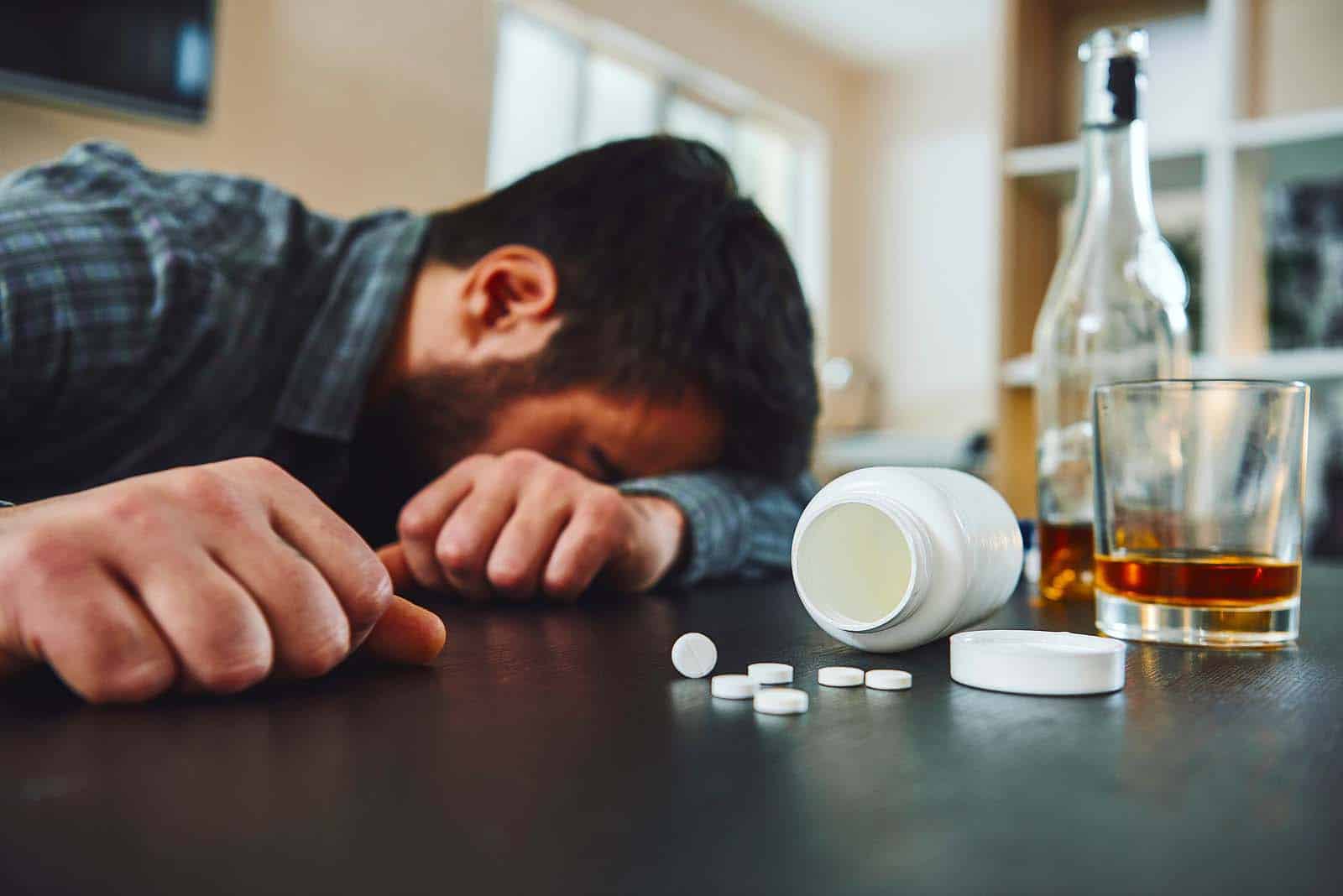Alcohol is known to have a depressing action on anyone who drinks it. Fast and excessive alcohol drinking can quickly slow down brain and muscle activity. Most people who are under the influence of alcohol tend to mix it with other drugs for recreational purposes.
Alcohol creates different reactions when mixed with other drugs. In general, when paired with depressants, the relaxing and numbing effects are magnified. However, when mixed with stimulants, a contradictory action takes place and both substances race towards having the most dominant effect.
Considering the possible risk associated with mixing alcohol with other drugs, people with alcohol abuse disorder must tell their physician about one’s drinking habit before getting any prescription drugs.
Alcohol and Nicotine
Most people suffering from alcohol use disorder are also smokers. There is a high correlation between the two because of their similar effect on the brain. The alcohol supplements the rewarding effect of nicotine.
In the United States, around 46 million adults are engaged in both drinking and smoking, wherein 6.2 million are suffering from alcohol use disorder and nicotine addiction.
Behavioral links between alcoholism and smoking:
- People with alcohol use disorder are three times more prone to being a smoker
- Smokers are four times more prone to progressing alcoholism
Alcohol and Cocaine
Combining these two substances produces an intense feeling greater than any of the two solely used alone. The two substances race towards getting the dominant effect on the person. Cocaine is a known illicit stimulant while alcohol is known for its depressant effects. These interactions create a psychoactive effect in the brain of the user, a mixture of simultaneous euphoric and relaxing feeling.
Aside from the addictive effect, combining these two substances poses a great threat to one’s health. The mixture of these substances creates a compound called cocaethylene. This is a toxic substance which can damage the liver and the heart of a person.
Health risks associated with the combination of these substances:
- Heart failure
- Constriction of blood vessels in the brain
- Internal bleeding of the brain
- Irregular heartbeat
- Heart diseases
Alcohol and Heroin
Alcohol and Heroin both induce a depressant action on the brain and body of a person. Combining these two substances magnifies the effect of slowing down both brain and muscle functions. The interaction of these substances can lead to detrimental health effects such as heart and lung failure, paralysis, and death.
Alcohol and Cannabis
Alcohol and Marijuana are both considered “downers” which give that relaxing effect. Taking the two together can pose severe health effects which can lead to death.
Cannabis is known to have an antiemetic effect which means it’s capable of inhibiting nausea and vomiting. When a person drinks too much alcohol, it tends to vomit in order to release the excess alcohol. However, due to the antiemetic effect of cannabis, excess alcohol cannot be vomited out from the gut.
Other effects for taking the two substances together include the following:
- Paranoia
- Extreme drowsiness and lethargy
- The active component of cannabis which is THC is absorbed faster in the blood with the presence of alcohol.
- Elevated anxiety levels
Alcohol and Antidepressants
Antidepressants are drugs intended to cure depression. Alcohol and Antidepressants work in opposite ways. Alcohol tends to counteract the effect of these medications in treating depression. Consequently, the person tends to drink more alcohol in order to overpower the other substance.
There is a high incidence level of alcohol use disorder (15.1 million people ages 18 and older) in the United States in 2015. Consequently, this scenario also supports the high rate of antidepressant use in the country. From 1999 to 2014, an increase of 65 percent was reported for people taking antidepressant medicines.
Here are some of the common effects of mixing these two substances.
- Elevated states of depression and anxiety: Alcohol’s major side effect is aggravating and inducing depression and anxiety to individuals.
- Increase in blood pressure: Alcohol increases blood pressure when mixed with specific types of antidepressants - monoamine oxidase inhibitors, e.g. Marplan, Nardil, Emsam, and Parnate.
- Decrease mental functions such as focus, coordination between senses and muscles, and reaction to stimuli
- Magnifies the effect of sleepiness and lethargy.
Alcohol and Anticonvulsants
Anticonvulsants are known to medicate patients with seizure disorder. Some of these medications have active ingredients belonging to the benzodiazepine group while others are mainly made from barbiturates. Below are some of the most common reactions when mixing alcohol with anticonvulsants.
- Alcohol magnifies the depressing action of anticonvulsant drugs belonging to the benzodiazepine group. Examples of these medications are Valium and Klonopin.
- Mixing alcohol with these medications can lead to a higher risk for the occurrence of seizures
- Higher chance of inducing depression and anxiety
Alcohol and Antibiotics
The main role of antibiotics is to medicate contagious diseases. In general, it is not advisable to drink alcohol when taking these medications as it induces serious side effects.
A person must avoid alcohol drinking when taking the antibiotics metronidazole and tinidazole as it causes stomach pains, hot flushes, irregular heartbeat, headaches, and drowsiness.
Metronidazole
An antibiotic used to treat vaginal or dental infections, and leg ulcers.
Tinidazole
An antibiotic used to treat gut infections.
A person must avoid drinking alcohol when taking the following antibiotics:
- Furoxone
- Grisactin
- Flagyl
- Atabrine
- Linezolid
- Doxycycline
Some of the most common side effects of mixing alcohol with antibiotics:
- Nausea and vomiting
- Headache
- Seizures
- Reduced effectivity of the medicine
Alcohol and Antihistamines
Drinking alcohol while taking antihistamine drugs can aggravate the side effects of drowsiness and sleepiness. Likewise, the body tends to process alcohol first before any medications, thus, alcohol drinking inhibits the medicinal action of these drugs.
Alcohol and Antidiabetic Drugs
Drinking alcohol is prohibited for people taking antidiabetic drugs for it inhibits its medicinal effect. Here are some of the common interactions when alcohol is mixed with these kinds of medications:
- Excess alcohol levels in the body can inhibit the liver’s ability to regulate blood sugar.
- Alcohol when taken with antidiabetic drugs such as metformin, oral diabetic medicine, can lead to lactic acidosis. Lactic acidosis indicates there is an excessive buildup of lactic acid in the blood due to lack of dissolved oxygen.
- Alcohol also alters the standard action of insulin in the body.





